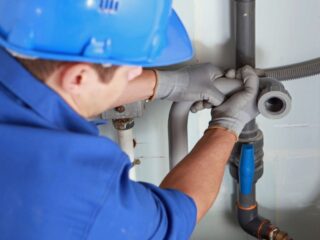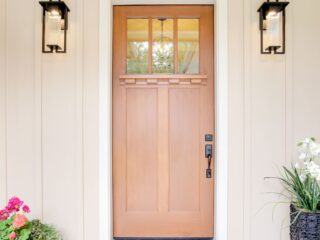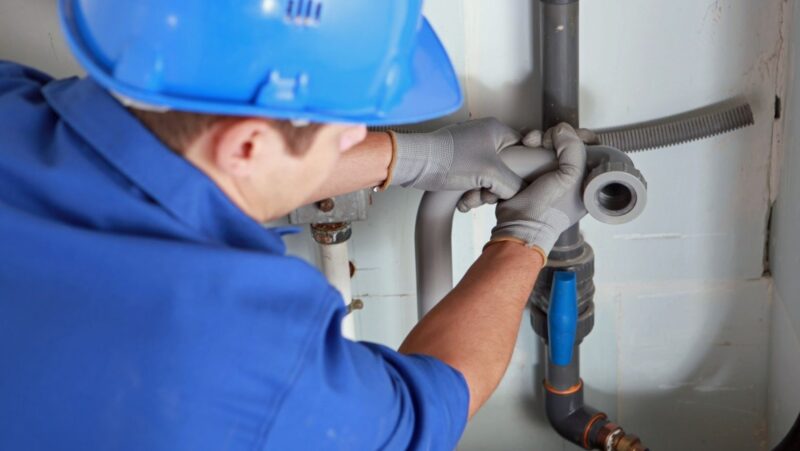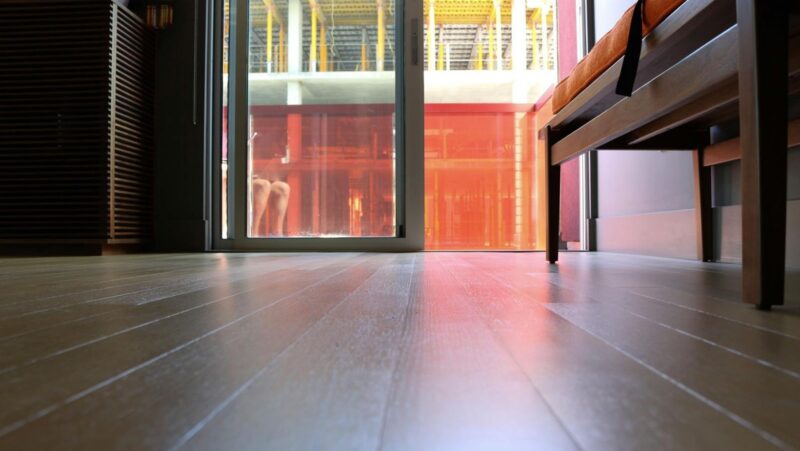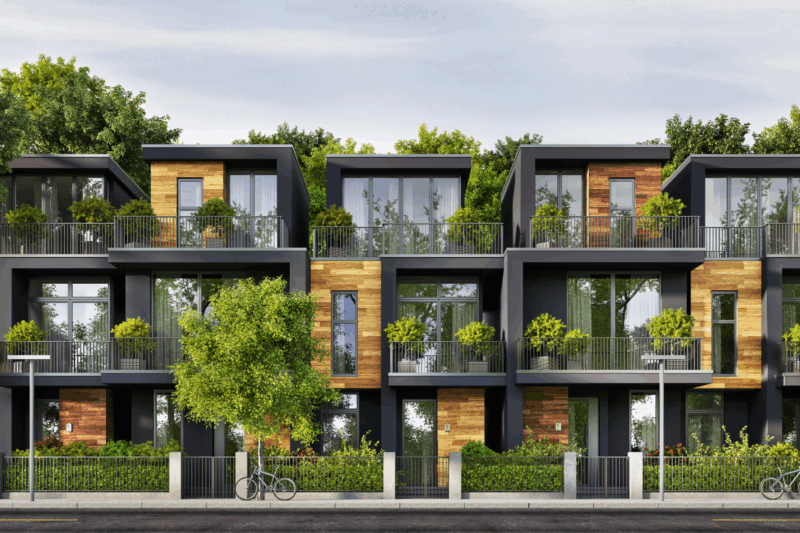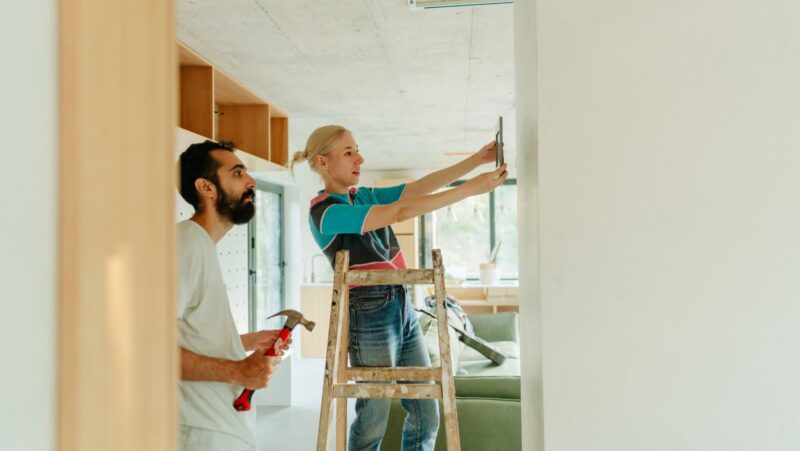
What is a Smart Home?
A smart home integrates advanced automation systems to enhance comfort, security, and efficiency for its inhabitants. It uses interconnected devices and home appliances that can be remotely controlled via smartphones, tablets, or other networked devices. This automation allows for the control of various home functions such as lighting, temperature, entertainment systems, and security features like locks and alarms, all from one central point or remotely through the Internet.
The technology in a smart home is designed to learn from the homeowners’ habits and preferences to optimize and automate actions according to their needs. For instance, a smart thermostat can adjust the heating and cooling based on your daily schedule and even adapt to unexpected changes like an early return home. This ability not only enhances the comfort and convenience of living but also helps reduce energy consumption by managing resources more efficiently. Thus, a smart home provides a futuristic living experience and contributes to a sustainable lifestyle.
The Value Proposition: How Smart Homes Boost Property Values
Smart homes significantly enhance property values, a trend increasingly recognized by top realtors in Miami, FL, and other tech-savvy markets. The installation of smart home technology appeals to modern buyers who value convenience, efficiency, and advanced security features. These systems allow homeowners to manage their properties through automated systems for lighting, heating, cooling, and security, which can be controlled remotely via smartphones or other devices.
This convenience factor is a major selling point. For example, the ability to adjust your home’s temperature or check security cameras from anywhere in the world not only adds to personal comfort but also increases the attractiveness of the property to potential buyers looking for cutting-edge technology in their new home. Moreover, smart homes tend to be more energy-efficient, which is not only good for the planet but also reduces utility bills, making these homes more appealing from a cost-saving perspective. Consequently, properties equipped with such technologies often command higher prices in the market, offering a clear value proposition to homeowners considering smart upgrades.
Smart Homes in the Market: Statistics & Trends
The market for smart homes has seen exponential growth over the past few years, driven by technological advancements and increasing consumer interest in home automation. According to industry statistics, the global smart home market is projected to exceed $100 billion by 2025, underscoring this sector’s significant investment and development. This surge is partly due to the enhanced connectivity and the proliferation of Internet of Things (IoT) devices that make smart home solutions more accessible and user-friendly.

Consumer trends also indicate a growing preference for homes that offer smart technology, with surveys showing that a majority of buyers are willing to pay a premium for homes with pre-installed smart home devices such as smart thermostats, automated lighting systems, and advanced security features. Additionally, the ongoing push towards energy efficiency and sustainability has fueled interest in smart homes, as these systems can significantly reduce energy usage and costs.
Smart Technology and Home Security
Smart technology has revolutionized home security, providing homeowners with sophisticated tools to protect their property and loved ones. Modern smart security systems include features like real-time video surveillance, motion detectors, and automated alerts that can be managed directly from a smartphone or tablet. This means that homeowners can monitor their homes from anywhere in the world, receiving instant notifications if any suspicious activity is detected.
Additionally, smart locks and access controls enhance security by allowing homeowners to grant or restrict access remotely, eliminating the need for physical keys and reducing the risk of unauthorized entry. Integrating these technologies not only deters potential intruders but also provides homeowners a sense of security and peace of mind. As a result, homes equipped with these smart security features are often seen as more desirable and can command higher market values.
Smart Homes and the Future of Real Estate
Smart homes are set to play a pivotal role in shaping the future of real estate. As technology advances, integrating smart home features is becoming a standard expectation rather than a luxury. This shift influences homebuyers’ preferences, with many prioritizing properties that offer smart technology, which can manage everything from climate control to security systems through intuitive interfaces.
The real estate market is responding by highlighting these smart features as key selling points, enhancing properties’ appeal and value. Moreover, as smart homes become more interconnected and capable of self-management, they also promote a more sustainable lifestyle by optimizing energy use and reducing waste. This evolution is expected to continue, with future innovations likely to integrate homes with broader smart city infrastructures further, enhancing the overall quality of urban living and making smart homes a central component of modern real estate development.
How to Make Your Home Smart
Transforming your home into a smart home can be straightforward, beginning with small, manageable steps. The first step is to invest in a central smart home hub, which connects various devices and allows them to communicate and be controlled centrally. Common starting points include smart speakers like Amazon Echo or Google Home, which enable voice control of other smart devices.

From there, you can add smart lighting systems, which allow you to control the lights via mobile apps or voice commands, and smart thermostats, which adjust your home’s temperature based on your habits and preferences. Installing smart security devices such as cameras, smart locks, and alarm systems can enhance your home’s safety and give you peace of mind with remote monitoring capabilities. Lastly, consider smart appliances like refrigerators, ovens, or washing machines that can be programmed and monitored remotely for a fully integrated smart home experience. By gradually adding these elements, you can transform your conventional home into a modern, smart living environment.
Case Studies: Before and After Smart Upgrades
Case studies from realtors in Florida vividly demonstrate the transformative impact of smart home upgrades on property values and appeal. One notable example is a mid-century home in Miami that was retrofitted with a comprehensive smart home system, including smart lighting, security, and climate control. Prior to the upgrade, the property was valued at a standard market price for its size and location. However, after the installation of smart technologies, its market value increased by approximately 20%, mainly attributed to its enhanced appeal to tech-savvy buyers.
Another case involved a townhouse in Orlando where the owners installed smart thermostats, a smart refrigerator, and a high-tech security system. The real estate listing for the home highlighted these features, leading to a quick sale at a price 15% higher than comparable properties in the area lacking smart upgrades. These examples underscore the growing trend among realtors in Florida to promote properties with smart technologies as not just homes but future-ready investments, significantly boosting their marketability and value.
Conclusion
The rise of smart homes is a transformative trend that is reshaping the real estate landscape. As technology advances, smart home features are becoming essential elements that enhance day-to-day living through increased efficiency and security and significantly boost property values. For homeowners and potential buyers, the appeal of a connected, convenient, and modern living environment is undeniable. Looking ahead, the integration of smart technology in homes is likely to deepen, making smart homes standard in the housing market and a key determinant in property valuation.


